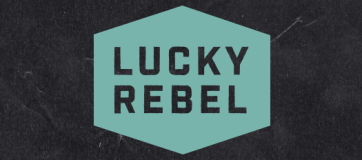- Online Casinos
- Online Betting Sites
- How to Deposit
- Gambling Site Reviews
- Gambling in My Location
 USA
USA- Alabama
- Alaska
- Arkansas
- Arizona
- California
- Colorado
- Connecticut
- Delaware
- Florida
- Georgia
- Hawaii
- Idaho
- Illinois
- Indiana
- Iowa
- Kansas
- Kentucky
- Louisiana
- Maine
- Maryland
- Massachusetts
- Michigan
- Minnesota
- Mississippi
- Missouri
- Montana
- Nebraska
- Nevada
- New Hampshire
- New Mexico
- New York
- North Carolina
- North Dakota
- Ohio
- Oklahoma
- Oregon
- Pennsylvania
- Rhode Island
- South Carolina
- South Dakota
- Tennessee
- Texas
- Utah
- Vermont
- Virginia
- Washington
- Wisconsin
- Wyoming
 Canada
Canada Australia
Australia UK
UK
- Casino of the Month
Is Online Gambling Legal in Canada?
Disclosure: At GamblingSites.com, our mission is to connect you with the best gambling sites and informational resources available. If you click one of the links on our site, we may earn a commission payment at no extra charge to you.
Online gambling in Canada is legal — but the laws are nuanced. Rather than a single national system, each province regulates gambling independently. That means whether you’re betting on sports, playing casino games, or purchasing lottery tickets online, the legality depends on where you are and what platform you’re using.
Let’s break down the history, federal framework, and current landscape to understand how gambling laws work in Canada today.
This score goes to the highest rated sites by experts. Only sites that hold an expert rating of above 85% are given this status.
A green Jackpot Certified score is awarded when at least 60% of expert reviews are positive.
A red Bust score is displayed when less than 60% of expert reviews are positive.
A grayed-out gem means there are not enough expert ratings to produce a score. The gambling site could be new.
A green Jackpot Certified score means that at least 60% of player reviews are positive.
A red Bust score means that less that 59% or less of player reviews are positive.
A grayed-out face means there are not enough player reviews to produce a score.
How Gambling is Regulated in Canada: Federal vs. Provincial Powers
Canada doesn’t have one single law that controls all gambling across the country. Instead, it uses a shared legal structure where the federal government sets the broad rules, but each province and territory decides how gambling works in its region.
This setup dates back to a major change in 1985, when the federal government gave provinces full authority to regulate gambling activities. That means your ability to bet on sports, play online casino games, or buy lottery tickets depends on where you live in Canada.
- The federal government: Still controls the Criminal Code, which outlines what kinds of gambling are generally legal or illegal across Canada. For example, it says that gambling operations must be licensed by a province to be legal.
- The provincial governments: Decide how gambling is offered within their borders. They run or license casinos, lotteries, and online gambling platforms. They also decide what types of bets are allowed and who can operate legally.
So, if a gambling site or service is licensed by a province (like Ontario or Quebec), it’s legal. If it’s based outside of Canada and not licensed, it’s technically operating in a grey area — but players are not breaking the law by using it.
This structure is why gambling laws, especially online, can vary from one province to another.
Online Gambling Laws in Canada
Online gambling is legal in Canada, provided the platform is licensed by a provincial authority. Each province decides how to manage online betting, and many operate their own sites offering casino games, sports betting, and lotteries.
These sites are only accessible to residents within that province. Examples include PlayNow (British Columbia and Manitoba), PlayAlberta, and Loto-Québec.
If a gambling site is not licensed by a Canadian province, it’s considered offshore. These sites often accept Canadian players, and many people use them. However, they aren’t regulated by Canadian authorities, meaning there’s less consumer protection if something goes wrong.
Importantly, it is not illegal for Canadians to use offshore gambling sites. The law targets unlicensed operators, not individual players.
In short:
- Licensed Canadian sites = fully legal and regulated.
- Offshore sites = widely used, but not overseen by Canadian governments.
- Players are not prosecuted for using offshore platforms.
Province-by-Province Gambling Regulation
Since regulation is local, each province and territory has its own gambling framework. Here’s a quick overview of where online gambling stands across Canada:
| Province/Territory | Regulator | Online Gambling Platform | Legal Gambling Age |
|---|---|---|---|
| Alberta | AGLC | Play Alberta | 18 |
| British Columbia | BCLC | PlayNow | 19 |
| Manitoba | LGCA | PlayNow | 18 |
| New Brunswick | NBLGC | Atlantic Lottery | 19 |
| Newfoundland & Labrador | Atlantic Lottery Corp | Atlantic Lottery | 19 |
| Nova Scotia | NSGC | Atlantic Lottery | 19 |
| Ontario | AGCO / iGaming Ontario | Multiple licensed sites | 19 |
| Prince Edward Island | PEI Lotteries Commission | Atlantic Lottery | 19 (18 for lottery) |
| Quebec | Loto-Québec | EspaceJeux / Loto-Québec | 18 |
| Saskatchewan | SLGA / SIGA | PlayNow (since 2022) | 19 |
| Yukon, NWT, Nunavut | Local regulators (limited activity) | None | 19 |
Note: Ontario is unique in allowing private online gambling operators (like BetMGM, FanDuel, etc.) to enter its market under provincial license.
Indigenous and Offshore Operators
In addition to the provincially run platforms, some online gambling in Canada is operated by Indigenous authorities or based overseas. These options exist outside the traditional provincial systems but still play a major role in how many Canadians gamble online.
Kahnawake Gaming Commission
Located in Quebec, the Kahnawake Gaming Commission has regulated online gambling since 1996, operating independently under Mohawk jurisdiction. Its most prominent licensee is Sports Interaction, a legal site for Canadian players through its Mohawk Online division.
Offshore Sites
Canadians frequently use internationally licensed sites. While these are not regulated by provincial authorities, players are not breaking any law by participating. Still, there’s less consumer protection compared to playing on a provincial site.
A Brief History of Canadian Gambling Laws
Canada’s gambling legislation has evolved significantly over the past century. Four major legislative milestones shaped the landscape:
- 1892: The Canadian Criminal Code prohibited most forms of gambling.
- 1969: Amendments allowed for government-run lotteries to fund public initiatives.
- 1976: Sports lotteries were introduced — but limited to parlay betting.
- 1985: The federal government gave provinces full control over gambling activities, including casino operations, lotteries, and betting schemes.
These shifts set the stage for the diverse, province-led gambling systems we see today.
Key developments after 1985
Since provinces took control of gambling in 1985, Canada has made steady changes to keep up with new technology and player demand. This includes the launch of online casinos, Indigenous-regulated sites, and the legalization of single-game sports betting.
- 1996 – The Kahnawake Gaming Commission is established in the Mohawk Territory of Quebec, becoming one of the first jurisdictions in the world to regulate online gambling.
- 1997 – Sports Interaction launches as Canada’s first Indigenous-licensed online gambling site, operating under Kahnawake authority.
- 2010s – Multiple provinces launch government-run online gambling platforms, including PlayNow (BC, MB), PlayAlberta, and Loto-Québec.
- August 2021 – Bill C-218 passes, amending the Criminal Code to legalize single-game sports betting. Provinces can now offer individual game bets through licensed platforms.
- April 2022 – Ontario launches a regulated iGaming market, becoming the first province to license private online casinos and sportsbooks (e.g., BetMGM, FanDuel).
- 2022–2023 – Saskatchewan partners with the Saskatchewan Indian Gaming Authority (SIGA) to launch PlayNow.ca, marking the first online gambling site co-managed with a First Nations authority.
Key Facts About Gambling in Canada
- Gambling winnings are tax-free in Canada for players (unless gambling is your profession).
- Legal age varies: Either 18 or 19, depending on the province.
- VLTs (Video Lottery Terminals) contribute a significant portion of gambling revenue, especially in Alberta and Quebec.
- Online gambling laws may change, especially around licensing and sports betting expansion.
Final Thoughts: Is Online Gambling Legal in Canada?
Yes, online gambling is legal in Canada, but it’s regulated at the provincial level. This means:
- You can legally play at provincially licensed sites.
- You can access offshore sites without risk of prosecution, but you do so at your own discretion.
- Operators must be licensed by a Canadian province (or by a recognized Indigenous regulator like the Kahnawake Gaming Commission) to legally offer services within Canada.
The legal landscape continues to evolve, especially with the growth of single-game betting and Ontario’s open licensing model. Always check your province’s gambling authority for the latest regulations and approved platforms.
Canada Online Gambling Law FAQs
Yes, sports betting is legal online in Canada, including single-game bets. Each province authorizes its own betting services and platforms.
No, Canadian players are not penalized for using offshore gambling sites, although those platforms are not provincially licensed or regulated.
No, each province sets its own gambling regulations, including which games are legal, where you can play, and how online platforms operate.
Ontario allows both government-run sites like OLG.ca and private operators licensed under iGaming Ontario, including BetMGM, FanDuel, and others.
Yes, single-game betting is available through Alberta’s official platform, Play Alberta, which launched the feature following national law changes in 2021.
No, gambling winnings are not taxed in Canada unless you are considered a professional gambler by the Canada Revenue Agency.
This score goes to the highest rated sites by experts. Only sites that hold an expert rating of above 85% are given this status.
A green Jackpot Certified score is awarded when at least 60% of expert reviews are positive.
A red Bust score is displayed when less than 60% of expert reviews are positive.
A grayed-out gem means there are not enough expert ratings to produce a score. The gambling site could be new.
A green Jackpot Certified score means that at least 60% of player reviews are positive.
A red Bust score means that less that 59% or less of player reviews are positive.
A grayed-out face means there are not enough player reviews to produce a score.
 80%
80% 75%
75%
